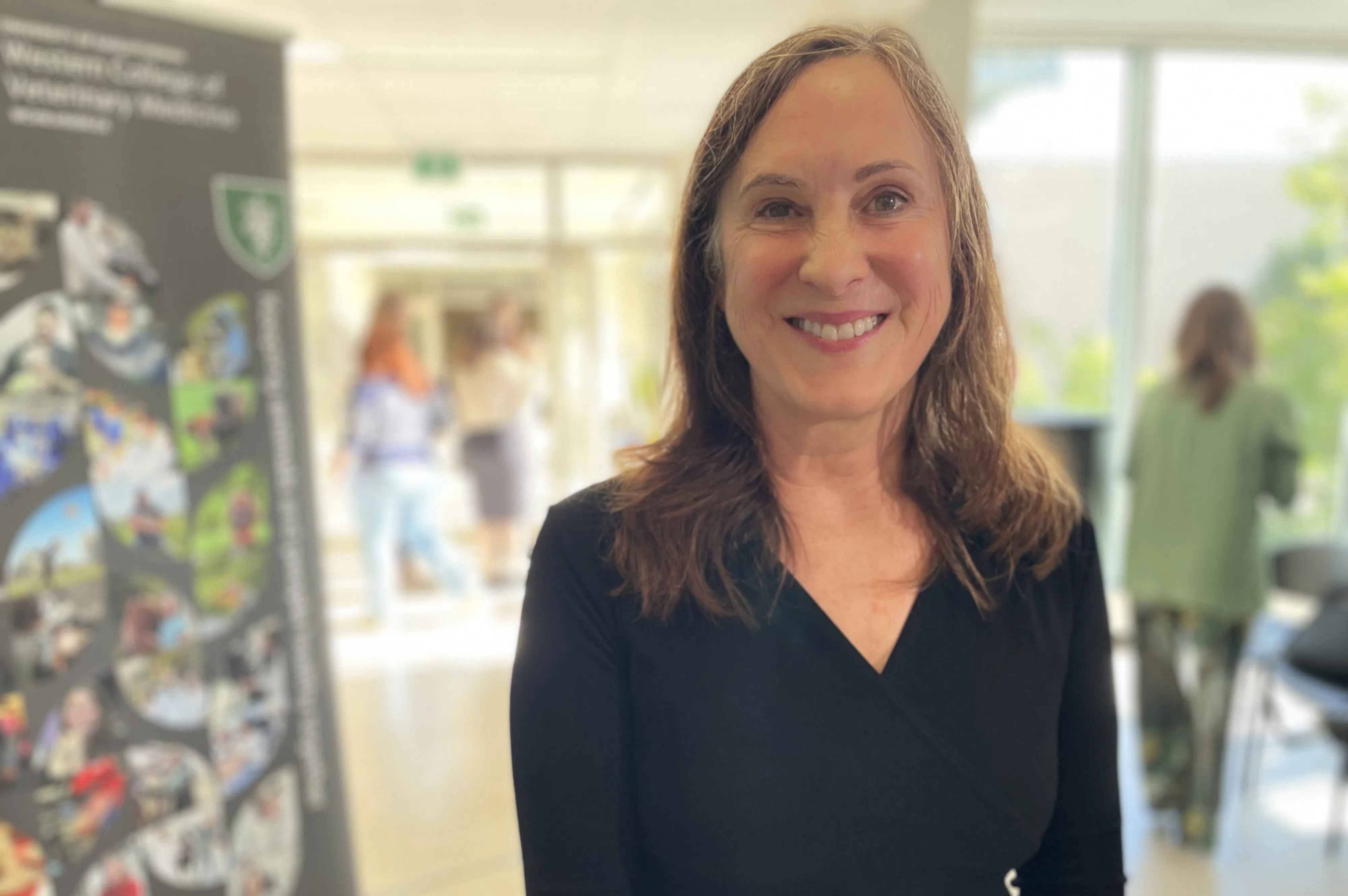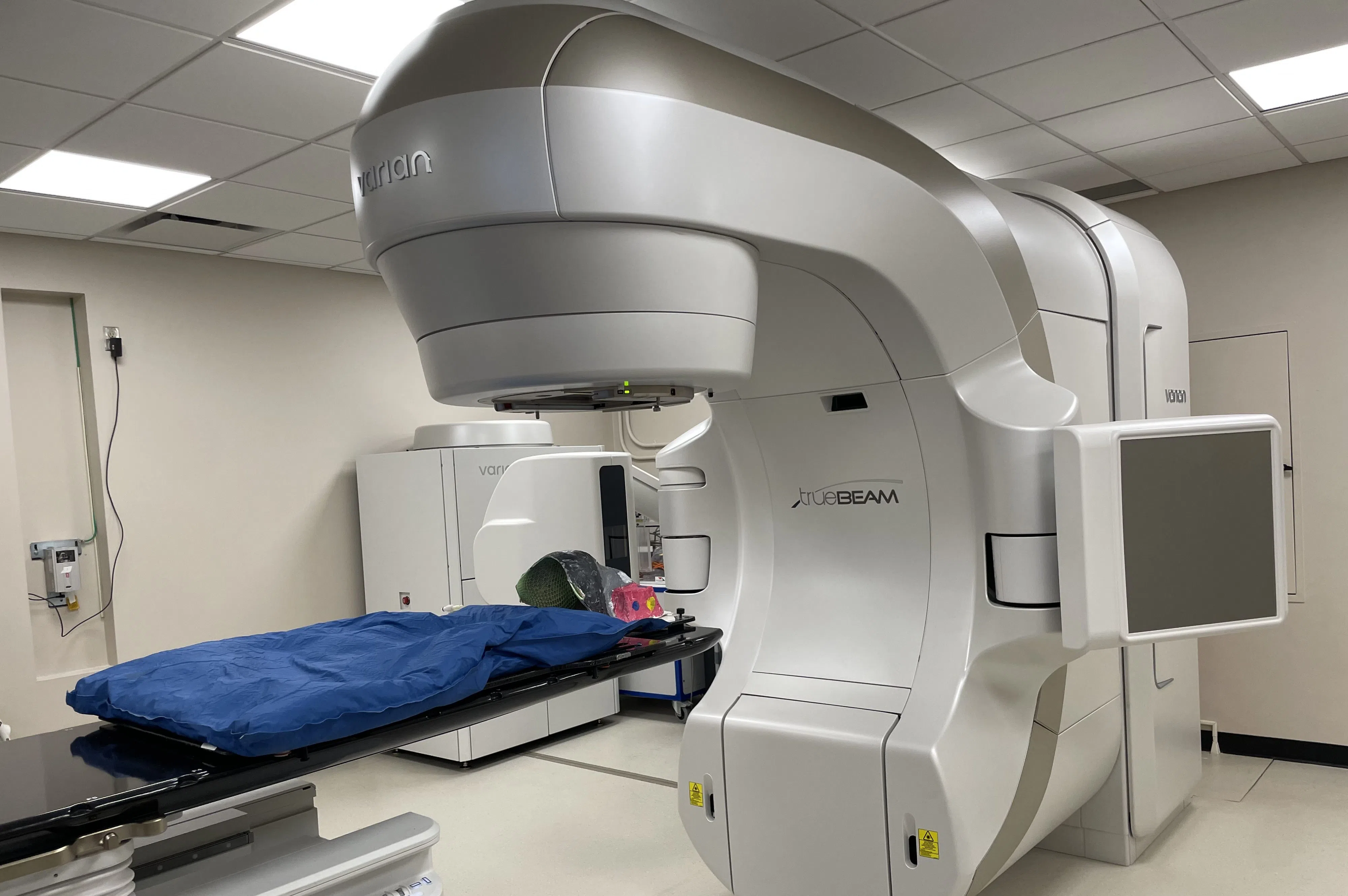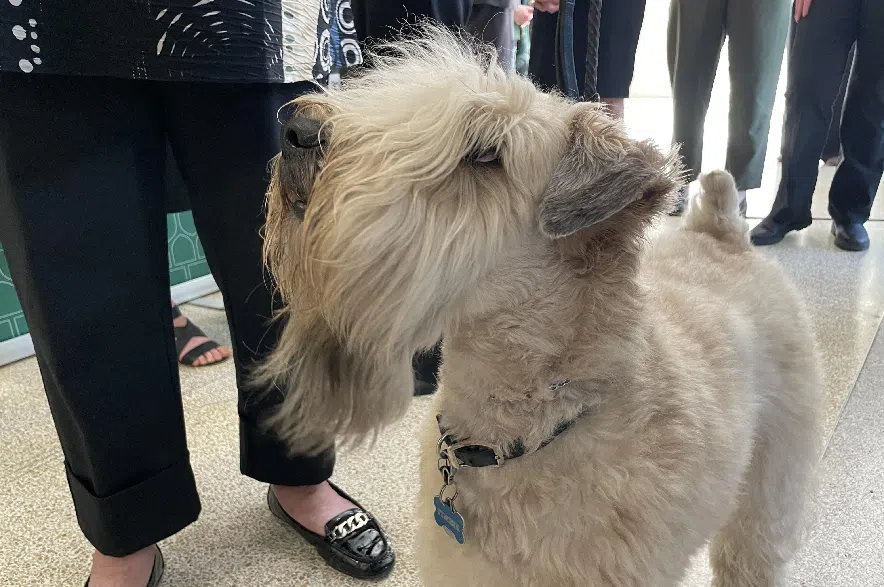Saskatchewan offers the best cancer care in the North America for household pets.
The Western College of Veterinary Medicine at the University of Saskatchewan unveiled a new MRI and linear accelerator this week, two tools which will allow oncologists to accurately diagnose and treat animal cancers, possibly extending the animals’ lives.
Read more:
- U of S vet school first in Canada to have PET-CT
- University of Sask. receives funding for two new agricultural research facilities
- University enrolment cap rob schools of cultural diversity: USask
The college has older versions of the machines that were aging and had to be permanently shut down.
Dr. Monique Mayer, a veterinary radiation oncologist, said the oncology team at the college can now provide a level of cancer treatment that exceeds anything else offered in Canada – and North America.
The new 3 Tesla MRI and linear accelerator are the same types of machines used at human cancer centres.
After pets are put under anesthesia, they are put into the imaging unit where the oncology team can pinpoint a tumour within a few millimeters. The linear accelerator uses radiation to treat detected tumours, and is accurate to within less than a millimeter.
Mayer said that level of precision means the radiation treatment can avoid organs, lessening the impact on animal patients.
It will mean that pet owners could get more time with their animals, who can be considered members of the family.

Dr. Monique Mayer, a veterinary radiation oncologist, said the new MRI and linear accelerator can help give people more time with their pets, who are often considered members of a family. “People want to get treatment for animals with cancer, and that’s what we’re providing,” she said. (Marija Robinson/650 CKOM)
Sometimes, the cancer can be cured and the animal can live for years, Mayer said.
“Sometimes it’s palliative treatment and we’re giving them some extra time that they have to say goodbye,” Mayer added.
Unfortunately, treating a pet’s cancer isn’t a rare experience for families. According to Mayer, about half of all dogs and a third of all cats develop cancer at some point in their life.
The college’s cancer treatments will have wide-reaching benefits, and Mayer said patients from western Canada and the U.S. will come to Saskatchewan receive care.

The linear accelerator will allow the oncology team to treat visualized tumours using ionizing radiation. (Marija Robinson/650 CKOM)
“Animals are also very good models for human cancer, and so what we learn about animals as we treat them or offer clinical trials, we can apply to benefit people as well,” Mayer said.
The MRI has been operational for the past few weeks, while the linear accelerator is expected to be running before the end of October.











